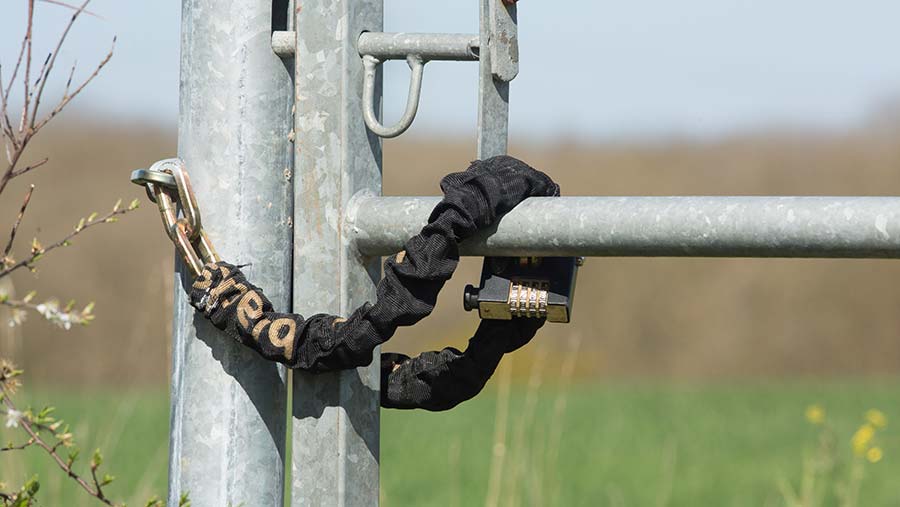FW Opinion: Punishment must fit the crime in our rural areas
 © Tim Scrivener
© Tim Scrivener Rural crime is a threat to farmers that shows very little sign of abating. The coronavirus pandemic and extreme weather mean this year has been challenging enough, but farmers continue to be targeted by criminals who do not discriminate.
There have certainly been spikes in fly-tipping and machinery theft since the lockdown. Just two weeks ago, Lincolnshire farmer Andrew Ward shared shocking images of more than 30t of waste dumped in a country lane and blocking access to his fields.
It was fly-tipping on an industrial scale, with no regard for those who use and care for the land.
See also: Farmers and police join forces against rural criminals
About the author
 Ed Henderson
Ed Henderson
News reporter, Farmers Weekly
Contact:
E: ed.henderson@markallengroup.com
T: @ed_henderson
Read more articles by Ed Henderson
Sadly, it is an all too common occurrence around the country and farmers are often left to deal with the clean-up.
In the North East, a Cleveland Police survey revealed rural residents felt more at risk and isolated during the coronavirus pandemic and, of the 169 responses, 58% highlighted fly-tipping as a problem.
Despite Boris Johnson’s pledge of 20,000 new police officers on the streets in the next three years, it is unlikely we will see a big influx of rural reinforcements, with forces already stretched dealing with other serious crime.
But it is encouraging to see that more than half of the rural police forces in England and Wales now have a dedicated rural crime team.
There is evidence these taskforces can be extremely effective. New statistics show that reported wildlife offences in North Wales dropped from 337 in 2008 to 32 in 2019 – a 90% decrease – and the force said it was on track to record an even lower total for this year.
But it is vital farmers report all crimes to the police, to help build a picture of criminality in certain areas and show forces where they need to direct more resources.
Under-reporting is part of the rural crime problem, but it is the element farmers can most easily fix. The Countryside Alliance says more than one in four people in rural areas did not report the last crime they were a victim of, because they either felt it was a waste of time or that the police would not be able to do anything about it.
Fear of reprisals is understandable and the mental and emotional impact of rural crime is sometimes forgotten amid the financial implications. For many farmers their workplace is also their home, and no one should feel unsafe in either.
Yes, it takes time and costs money, but now could be a good time to review farm security. Police Scotland saw a 114% increase in the amount of farm machinery it recovered between April and June, partly due to increased use of tracking devices.
Could a hidden camera in that spot where waste is illegally dumped help lead to a conviction?
Rural insurer NFU Mutual will publish its annual report on crime next month, and expects to see yet another year-on-year increase, based on its claim statistics.
Much rural crime is now highly organised, with gangs making huge amounts of money, in particular stealing high-value tractors and GPS equipment to order, before shipping it out of the country.
Tougher sentences and higher conviction rates are needed to provide an effective deterrent. With the National Police Chiefs Council having published its rural affairs strategy two years ago, more needs to be done higher up the chain to ensure crooks in the countryside see the jail time they deserve.
